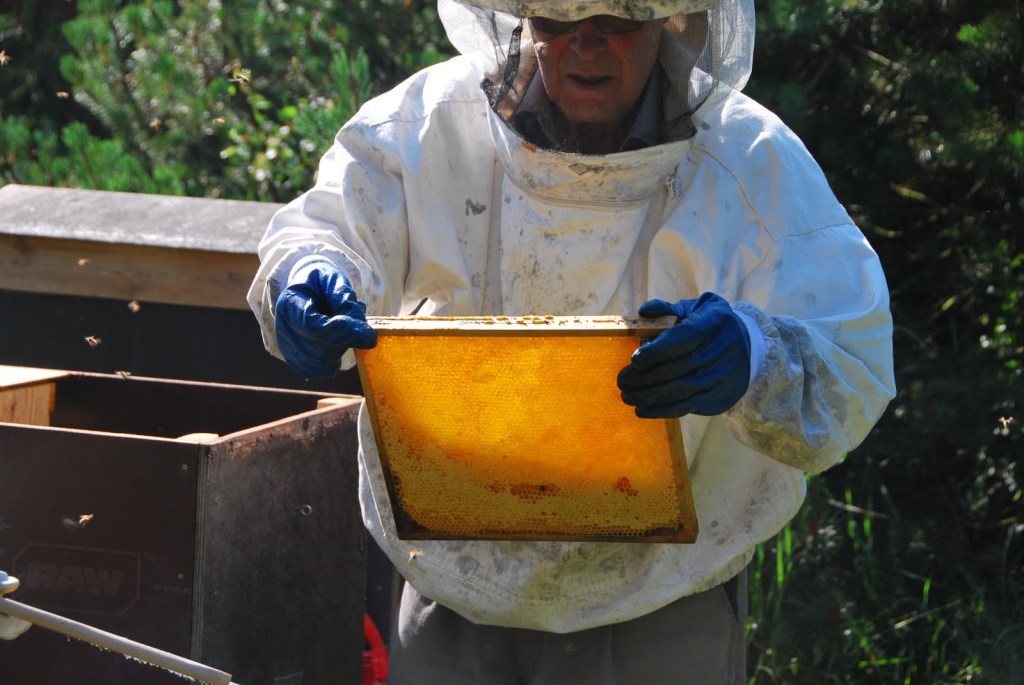Beekeeping: A Guide to Sustainable Rural Living
Introduction:
In recent years, beekeeping has gained popularity among rural enthusiasts who are looking for a sustainable and rewarding hobby. Not only does it provide an opportunity to connect with nature, but it also plays a vital role in supporting the environment by promoting pollination and preserving the delicate balance of our ecosystem. In this guide, we will take you through the basics of beekeeping – from setting up your hive to harvesting honey – so you can embark on your journey as a backyard beekeeper.
Getting Started:
Before diving into beekeeping, it’s essential to familiarize yourself with some basic concepts and equipment. The most crucial element is the beehive itself. There are various types of hives available, including Langstroth hives (the most common), top-bar hives, and Warre hives. Choose one that suits your needs and preferences.
Next, you will need bees! It’s important to source your bees from reputable suppliers or local apiaries to ensure healthy colonies. Bee packages or nucleus colonies are commonly used for starting out; they consist of worker bees along with a queen bee.
Location & Hive Placement:
Selecting an ideal location for your beehive is crucial for both the well-being of the colony and your convenience as a beekeeper. Ensure there is adequate sunlight exposure (preferably facing southeast) while providing some shade during hot summers.
Consider placing the hive away from high foot traffic areas but close enough that you can easily access it when necessary. Additionally, check if any local regulations restrict keeping bees within residential areas.
Maintaining Healthy Bees:
Proper care and maintenance are essential for maintaining healthy bee colonies throughout their lifespan. Regular inspections help identify potential issues such as disease or pests early on so that appropriate action can be taken promptly.
During inspections, keep an eye out for signs of good health—such as active brood patterns (larvae and pupae) and a thriving population—and address any issues you notice. Monitor mite levels, as Varroa mites are a common threat to bee colonies. Regularly cleaning the hive and ensuring it is well-ventilated will also help maintain optimal conditions for your bees.
Feeding & Pollen Sources:
While bees primarily gather nectar for honey production, they also require pollen as a protein source. Planting a variety of flowering plants in your garden or surrounding area will provide diverse sources of pollen and nectar throughout the year.
In some situations, supplementary feeding becomes necessary, particularly during seasons when natural food sources are scarce. Sugar syrup can be used to feed bees if needed, but avoid using commercial products that contain harmful additives or pesticides.
Harvesting Honey:
One of the most rewarding aspects of beekeeping is harvesting your own honey. However, patience is key! It takes time for bees to build up their colony before they can produce surplus honey that can be harvested without compromising their survival.
Typically, colonies need at least one full season (spring to fall) to establish themselves before considering honey extraction. During this period, focus on providing proper care and ample resources to ensure their strength and productivity.
When it comes time for harvest, use appropriate tools such as bee brushes or smokers to calm the bees while removing frames from the hive. Extracting honey involves uncapping wax cells using a hot knife or an electric uncapping tool before spinning them in an extractor machine. Finally, strain the extracted honey through cheesecloth or fine mesh filters before storing it in clean jars.
Conclusion:
Beekeeping offers numerous benefits beyond just producing delicious honey – it supports pollination efforts crucial for our ecosystem’s health while allowing us to connect with nature on a deeper level right in our backyard. With proper knowledge and commitment towards maintaining healthy colonies, anyone can become a successful beekeeper. So why not embark on this fascinating journey of sustainable rural living and beekeeping today?


Leave a comment